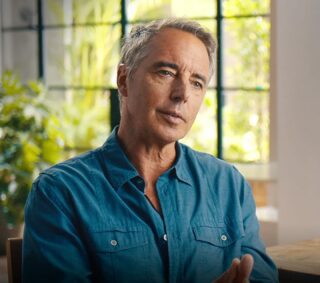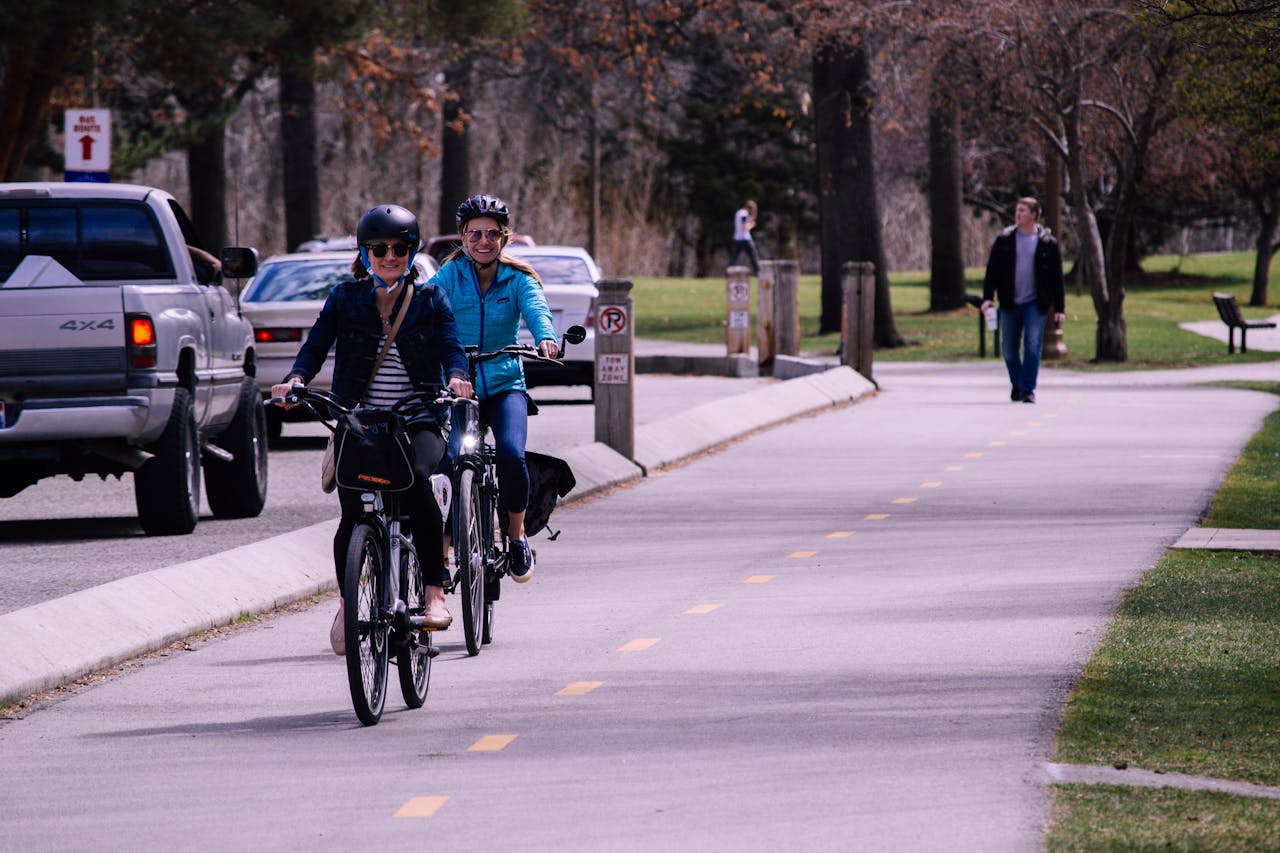In 2004, Dan Buettner led a group of researchers on a journey to uncover which regions of the world have the lowest rates of middle-age mortality. The results revealed five areas across the world where inhabitants were virtually free of the disease, with many even living to age 100 and beyond. Referred to as “Blue Zones,” these areas can unveil many secrets to living longer, one of which Buettner recently shared.
Taking to his Instagram, Buettner revealed that in cities with the highest healthspan, up to 50% of all trips are taken on foot or bike. So, could creating bike-friendly cities be the key to longevity?
Dan Buettner: Bike-Friendly Benefits for Longevity
“The world’s longest-lived people . . . live in environments that constantly nudge them into moving without thinking about it.” – Dan Buettner
Biking is a great way to stay active, and according to studies, two major ways of creating bike-friendly cities can boost your longevity.

danbuettner/Instagram
1. Improved air quality
According to experts, 7.3 billion people are directly exposed to unsafe air quality. Air pollution can significantly affect your longevity by shortening your lifespan by just under two years.
Per research, air pollution may increase the risk for many chronic conditions that include stroke, chronic obstructive pulmonary disease, trachea, bronchus, and lung cancers, as well as aggravated asthma and lower respiratory infections. If that’s not enough, it may even increase one’s risk for dementia and diabetes.
With that, creating a more-bike friendly environment may serve to simultaneously protect your health and combat air pollution.
With transportation accounting for about 30% of greenhouse gases in developed countries, swapping a car for a bike is truly the best option for both health and planet. Research from the University of Oxford reveals that using a bike over a car just once a day can reduce the average person’s transportation-related emissions by about 30% to 67%.
2. Improved Quality of Life
According to researchers from Columbia University, governments investing in bike-friendly cities is a cost-effective way to address multiple public-health problems, including for non-cyclists.
Aside from physical activity, biking means less traffic congestion, reduced fuel consumption, and improved road safety.
Additionally, more space for biking also means more space for walking. One study found that getting at least 8000 steps a day can reduce your risk of death over a 10-year period.
Want to know more?
Biking is a great way to stay fit, and it could also win you a gold medal at the Olympics. The 2024 Olympic Games have officially come to an end, and the United States left France with the most medals. Now, while you may not become an Olympic champion overnight, there are a few things we can learn from Team USA that can boost both our health and longevity.
References
@ danbuettner (2024). Instagram. 19 August. Available at: https://www.instagram.com/p/C-060PWx7qq/ (Accessed: 20 August 2024).
Banach, M., Lewek, J., Surma, S., Penson, P.E., et al. (2023). The association between daily step count and all-cause and cardiovascular mortality: a meta-analysis. European Journal of Preventive Cardiology, 30(18). doi:https://doi.org/10.1093/eurjpc/zwad229.
Brand, C., Götschi, T., Dons, E., Gerike, R., et al. (2021). The climate change mitigation impacts of active travel: Evidence from a longitudinal panel study in seven European cities. Global Environmental Change, 67, 102224. https://doi.org/10.1016/j.gloenvcha.2021.102224
Gu, J., Mohit, B., Muennig, P. (2016). The cost-effectiveness of bike lanes in New York City. Injury prevention : journal of the International Society for Child and Adolescent Injury Prevention. 23. 10.1136/injuryprev-2016-042057.
Mandal, S., Jaganathan, S., Kondal, D., Schwartz, J.D., et al. (2023). PM2.5 exposure, glycemic markers and incidence of type 2 diabetes in two large Indian cities. BMJ open diabetes research & care, [online] 11(5), p.e003333. doi:https://doi.org/10.1136/bmjdrc-2023-003333.
Monroe, L. (2022). The Link Between Bikeability and Health. [online] Blue Zones. Available at: https://www.bluezones.com/2022/07/the-link-between-bikeability-and-health/.
Rentschler, J., & Leonova, N. (2023). Global air pollution exposure and poverty. Nature Communications, 14(1), 1-11. https://doi.org/10.1038/s41467-023-39797-4
State of Global Air. (n.d.). Impact on Life Expectancy. Available at: https://www.stateofglobalair.org/hap/life-expectancy.
United Nations. (2021). FACT SHEET CLIMATE CHANGE. Available at: https://www.un.org/sites/un2.un.org/files/media_gstc/FACT_SHEET_Climate_Change.pdf.
Zhang, B., Weuve, J., Langa, K.M., D’Souza, J., et al. (2023). Comparison of Particulate Air Pollution From Different Emission Sources and Incident Dementia in the US. JAMA Internal Medicine. [online] doi:https://doi.org/10.1001/jamainternmed.2023.3300.



![women [longevity live]](https://longevitylive.com/wp-content/uploads/2020/01/photo-of-women-walking-down-the-street-1116984-100x100.jpg)










